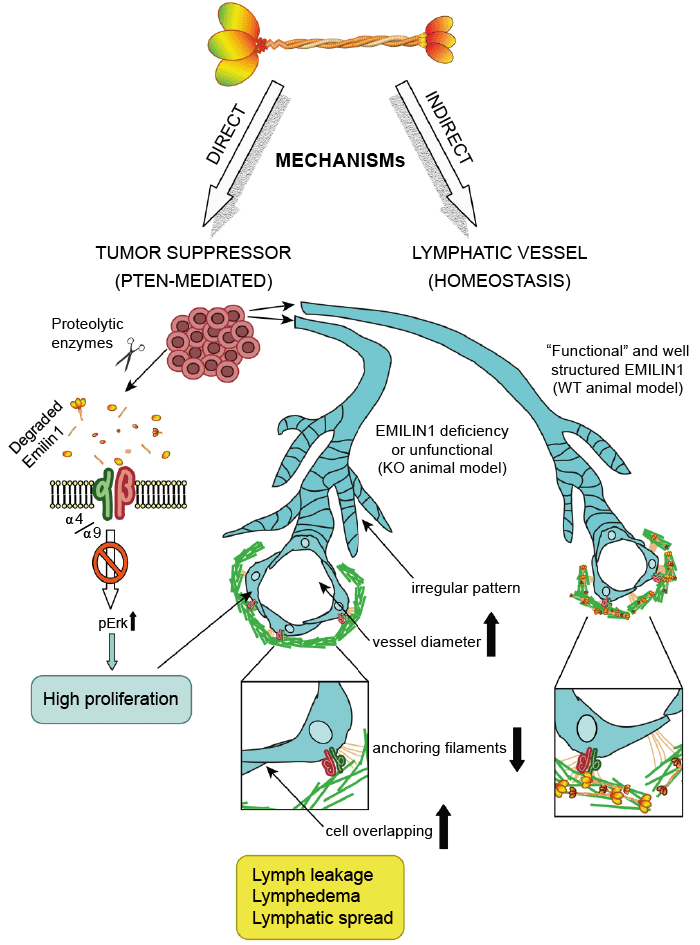
 |
| Figure 3: EMILIN1 and tumor microenvironment. EMILIN1 exerts a direct role in tumor growth through the specific interaction with α4/α9β1 integrins. When EMILIN1 is missing or degraded by proteolytic enzymes secreted by tumor microenvironment cells (stromal or inflammatory cells), the PTEN-mediated tumor growth suppressor function is lost. The dissemination of cancer cells in an EMILIN1-negative microenvironment (loss of function or protein deficiency) is indirectly favored by the structural defects of lymphatic vessels that display an irregular pattern, an increased vessel diameter, and a reduced number of anchoring filaments. These structural alterations determine higher lymphatic vessel permeability and render lymphatic vessels more permissive to the entry and exit of cancer cells. In addition, the lack of EMILIN1/ integrin interaction results in an increased proliferation of LECs. Thus, there are more and not functional lymphatic vessels to facilitate cancer spreading. |